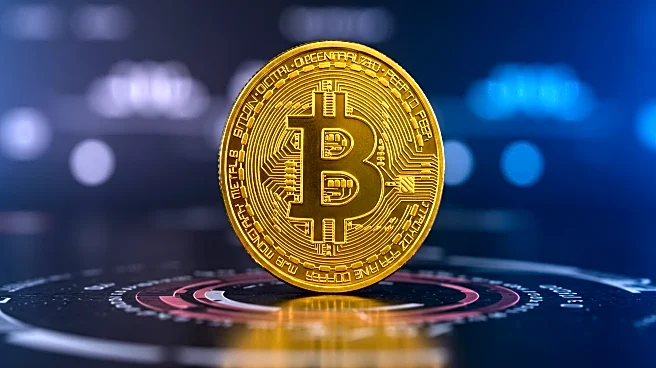What is the story about?
What's Happening?
Bitcoin's market capitalization has grown to account for approximately 1.7% of the global money supply, according to data from River, a Bitcoin financial services company. This growth comes as the United States Federal Reserve, led by Chairman Jerome Powell, signals potential interest rate cuts and continued monetary expansion. Powell's remarks at the Jackson Hole Economic Symposium indicated a cautious approach to policy changes, considering the stability of the unemployment rate and other labor market measures. The announcement led to a surge in Bitcoin's price, reflecting its sensitivity to monetary policy shifts.
Why It's Important?
Bitcoin's increasing share of the global money supply highlights its growing role as a financial asset and a hedge against inflation. As central banks continue to expand monetary policies, investors are turning to Bitcoin and other cryptocurrencies as alternatives to traditional fiat currencies. The potential rate cuts by the Federal Reserve could further boost Bitcoin's appeal, as lower interest rates typically lead to increased liquidity and investment in riskier assets. This development underscores the evolving landscape of global finance, where digital currencies are becoming integral to investment strategies.
What's Next?
Market participants will be watching for the Federal Reserve's next moves regarding interest rates, as these decisions will likely impact Bitcoin's valuation and investor sentiment. The cryptocurrency market may experience increased volatility as traders react to policy changes and economic indicators. Additionally, the growing acceptance of Bitcoin as a legitimate asset class could lead to further integration into mainstream financial systems, prompting regulatory considerations and potential shifts in market dynamics.















